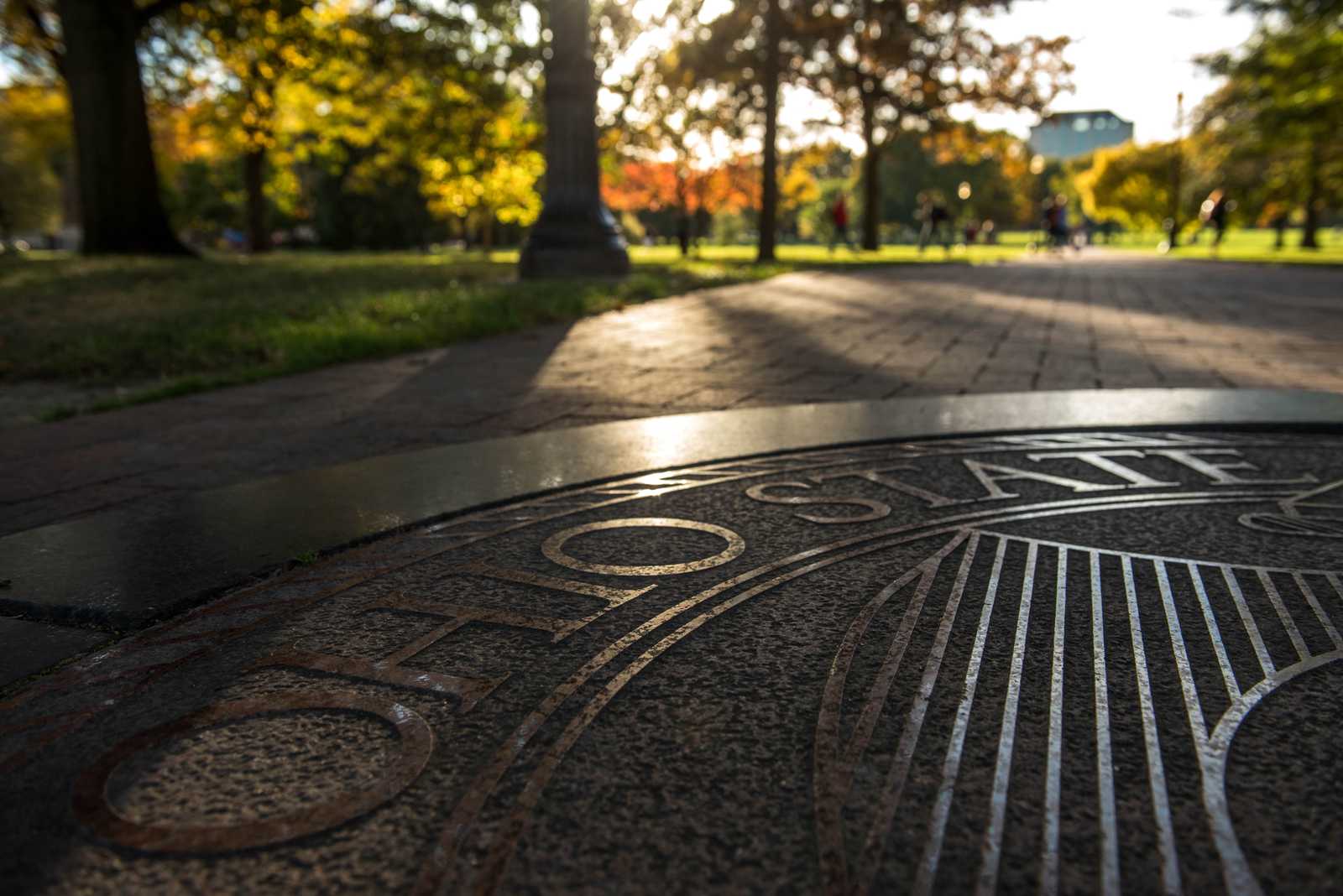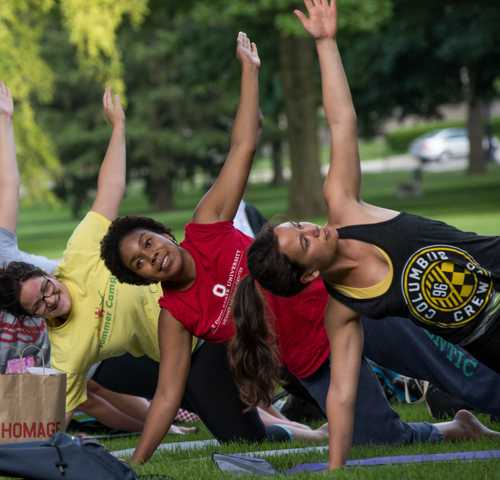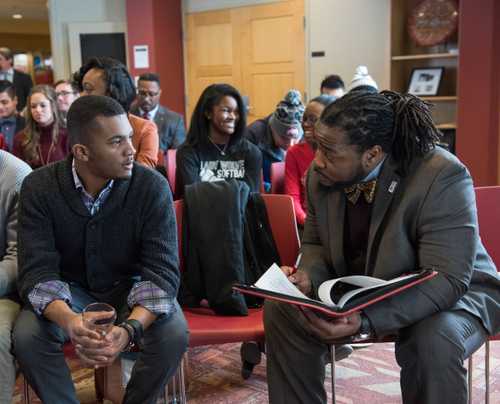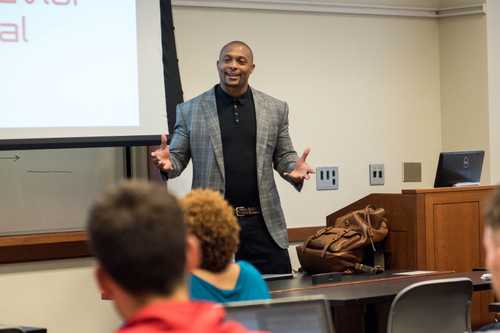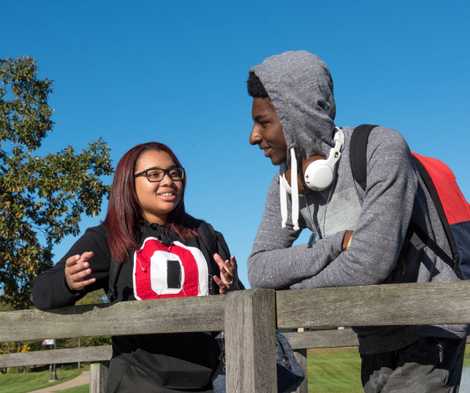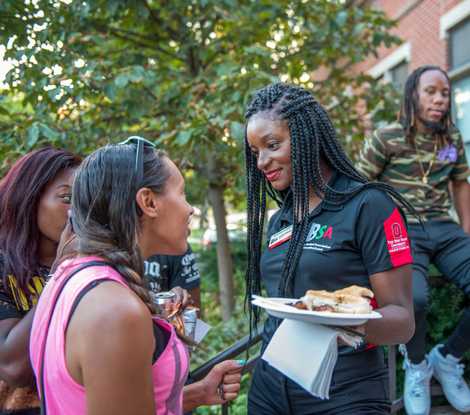Recommendations
Unified Recommendations
Money Matters
- Funding for staff to manage more Black male-specific interventions
- Increase initiatives and funding to support cultivation of Black faculty in underrepresented fields - provide additional funding to the Bell Fellows Program & RAISE Initiative
- Funding to support Black male-specific mental health and wellness support staff
- Reevaluate impact of financial incentives for regional campus enrollment
- Increase the number of full-tuition scholarships along with college completion grants
But then - I got the Morrill Scholarship and that's it. I was sold. I was just like, free college, yes, that is something I want to do.
- Brandy
Mental Health and Wellness for Black Students
- Increase educational opportunities about financial wellness beyond loans and paying for college
- Develop opportunities for students to engage with nuances around their Black identity (e.g., colorism, mental health stigma, intersections of race and other identities)
- Evaluate the use of embedded counselors and ensure awareness of mental health providers with shared identities
- Increase the number of Black mental health and wellness counselors and increase mental health services
- Train all mental health providers to be culturally responsive
Um, having a Black counselor for the first time, like, it was somebody who could resonate with me and like, also shared their experience [being Black in predominantly white spaces] and made me understand that, like, okay, you’re not crazy for feeling this way.
- Analise
Communication and Transparency
- Honestly portray the experiences of Black students at OSU to prospective students
- Make enrollment demographics for each OSU campus publically available
- Share the process of conducting a “holistic review”
- Agree on shared language between multiple campuses to ease transitions
- Outreach to Black campus change students throughout their first year at the Columbus campus
- Review and update how reports of racism and bias are managed and communicated
- Center conversations about race and follow with aligned actions
- Promote options for organizational involvement early to Black students to aid in informed decision making
- Improve promotion of multicultural events on-campus for all students to attend
- Improve promotion of services offered by ODI
After you know the movements and things that have happened on campus, just [institutional leadership] being slow to action. And yeah, just [institutional leadership] adjusting to white students needs rather than Black students needs...And it's like in the middle because there are a lot of resources [for Black males], but also know that there's a lot of progress that can be made to better the University’s relationship with Black male students.
- John
Major and Career Path Selection Support
- Ensure opportunities exist for students to engage in discussion of race around their chosen major/profession
- Provide network opportunities for Black students to engage with others in their major
- Host informal panels where Black males can share their persistence and resistance strategies
He [my advisor] has a really friendly sweet grandpa-like demeanor. He’s so sweet and he’s very helpful. He helped me navigate where I want my career path to go. He’s very understanding and flexible. That’s important to me.
- Heidi
Mentorship
- Ensure Black students have the opportunity and access to faculty to have open and honest conversations for academic and non-academic issues/topics
- Increase opportunities for cross-cultural mentorship
- Improve the quality of the Morrill Scholars Program (MSP) mentor-mentee relationship beyond the 1st and 2nd years
- Implement a peer mentor program connecting current Black OSU students on the Columbus campus with those changing from a regional campus
- Create or revive a formal Black male-specific peer mentorship program with stipend for mentors and mentees
So that's a piece [poor experience with white counselor] that motivated me to become more this counselor, mentor, coach for others and kind of directed me to psychology, because I was like I never want to have, I'll never want somebody to have an experience like that, where they just feel so misunderstood. Like naw, naw, that ain’t happening.
-John
Population-Specific Recommendations
Black Campus Change Students
Faculty and Staff Training
- Train faculty and staff in both cultural competence and empathy
- Recognize and reward faculty and staff for their work in creating inclusive spaces
- Normalize the many pathways students take to arrive at the OSU Columbus campus
Regional Campus Collaborations
- Increase availability of resources specific to Black students on regional campuses
- Create opportunities for Columbus faculty to learn teaching and student support strategies from regional campus faculty
Orientation and Transitions
- Develop an orientation to the Columbus campus for campus change students
- Emphasize culturally relevant resources in current and future transition tools
Resources for Black Campus Change Students
- Create additional points of entry or parallel experiences for Black students to join a cohort after transitioning to Columbus (e.g., Young Scholars or Morrill Scholarship Program)
Implications for Further Research and Assessment
- Increase support for research on the experiences of Black students (with particular attention to supporting Black researchers)
- Investigate resource use and availability to determine barriers to engagement and gaps in provided services
Black Men in 3rd and 4th Years
Culture & Climate
- Disseminate a Black male-specific culture survey
Black Students in 4th and 5th Years
Organizational Involvement
- Provide ongoing support and improve programming for Black students beyond the 1st and 2nd year
Conclusion
I know like, um, like for first generation students and Black students, like, retention rate is, like, it’s not as high as, like, White students. So I always feel like that’s kind of something in the back of my head. Like, I don’t want to just be, like, a number, another number. You know, I want to make sure I actually, like, graduate.
- Jas W.
